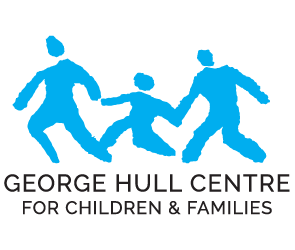Contact Us 416-622-8833
CASTER™ (Child and Adolescent Screener for Traumatic Events and Response)
Now Available in French & Spanish!
The CASTER™ is a screening tool for identifying trauma exposure and responses for children and youth early in the assessment and treatment process. It has been designed for mental health and allied professionals with training and experience in childhood trauma. The CASTER was designed in consultation with youth, parents, and experts in trauma. ©2021 The George Hull Centre
Why is Trauma Screening Important?
- Trauma screening allows mental health processionals, programs, and systems to provide the right care for children and families at the right time.
- It is designed to be administered to every child within a system to determine whether they should be referred for a comprehensive trauma-informed mental health assessment.
- Trauma screening should evaluate the presence of two critical elements:
-
-
-
-
-
- Exposure to potentially traumatic events/experiences, including traumatic loss
- Traumatic stress responses/symptoms
-
-
-
-
- Trauma screening should measure a wide range of experiences, identify common responses and symptoms of trauma, as well as other commonly reported difficulties.
Trauma Screening Best Practices

- Children in mental health services should routinely be asked about exposure to common traumatic events and screened for symptoms of posttraumatic distress.
- Screening and assessment processes are essential to developing a comprehensive understanding of the child, youth, and their family.
- Children and youth who have experienced complex trauma may have different symptom presentation and outcomes compared to children and youth with single episode traumatic exposure.
- Although children who have many symptoms of PTSD may not meet diagnostic criteria for a PTSD diagnosis, they often have similar impairments.
- Disrupted attachment has important implications for understanding symptoms and impairment and for the assessment and treatment of children and youth with trauma.
- Trauma screening (and subsequent comprehensive trauma-informed assessment as appropriate) should b e formally embedded into program processes to allow for better treatment planning.
CASTER Versions
There are 3 versions of the CASTER available at this time. It is recommended that users read the Administration Guide prior to use.
Parent/Caregiver Report (Children ages 0-5)
Parent/Caregiver Report (Children and Youth ages 6-18)
Self-Report (Youth ages 12-18)
All versions are available in French and Spanish, including the Administration Guide.
Administration Guide - Frequently Asked Questions
It is recommended that users read the Administration Guide prior to use.
The CASTER is designed for mental health professionals with training and experience in childhood trauma. The CASTER is typically used in clinical mental health services.
- Any parent/caregiver of a child (age 6–18 years) will fill out the “Parent/Caregiver Report”.
- Youth (age 12–18 years) will fill out the “Self-Report”.
Ideally, both youth and parent/caregiver complete the CASTER for youth aged 12–18.
The circumstances under which the CASTER may not be appropriate include:
- If the respondent (youth or parent/caregiver) expresses reservations or hesitancy about completing the CASTER.
- Situations where there is no opportunity to follow-up and debrief the CASTER in real time immediately upon completion.
- Situations where there is inadequate privacy for the youth or parent/caregiver to complete the measure.
- Crisis situations where the safety of the youth or parent/caregiver is not assured.
The CASTER is a screening tool and should be completed as part of the initial assessment process. It is important to have the necessary consent and rapport established to allow for safety to explore this sensitive material.
Youth or parent/caregivers should only fill out a double-sided printed version of the form (not a photocopied version). A photocopy does not capture shaded distinctions between the rows of items and may lead to completion errors.
Youth may disclose experiences and/or concerns on this form that they may not feel comfortable sharing in the presence of their parent/caregivers; therefore, youth and parent/caregivers should be given separate and private spaces to complete the CASTER.
Some youth or parents/caregivers may need additional support from the clinician to complete the form.
Given the sensitive nature of the questions, the CASTER should be completed within a clinical setting with the support of a clinician. Youth and parents/caregivers should be provided separate and private spaces to complete the CASTER. They should be provided with as much time as needed for completion.
The clinician should be available to provide support and answer questions, if necessary.
Before the youth/parent/caregiver leaves the meeting, the clinician should review the CASTER to make sure that it is complete and leave time to debrief with the respondent. The clinician should review any incomplete items to determine if there are questions and assist with completion where appropriate.
The youth or parent/caregiver may have disclosed information whereby the clinician has a duty to report or otherwise act on the information provided as per applicable laws or ethical standards.
The following items are critical items that may require immediate action:
Section ONE:
- Drug overdose for your child or someone close to your child
- Learned about serious harm, injury, or abuse of a family member or someone close to your child
- Hurt, bullied, or threatened in person or online by someone outside of the family
- Physically hurt by parent/caregiver (e.g., hit, kicked, hit with object)
- Physically hurt (e.g., hit, kicked, hit with object) by a close family member who is NOT a parent/caregiver
- Harsh non-physical discipline by parent/caregiver (e.g., locked in room, withholding food)
- Harsh or cruel criticism (e.g., threats, name calling, insults) by parent/caregiver
- Not enough food, appropriate, or clean clothing, or other basic needs
- Not enough affection, attention, or comfort from a parent/caregiver
- Saw or heard conflict/violence between parents/caregivers (e.g., screaming, threatening, hitting,
kicking) - Parent/caregiver with problematic drug or alcohol use, gambling, or other excessive behaviour (e.g., video games, social media, shopping)
- Parent/caregiver with serious emotional or mental health problems
- Highly sexual home (e.g., saw/heard adult sexuality, frequent sexual language)
- Exposed to, made to do, or had sexual things done to them by someone in
the family - Exposed to, made to do, or had sexual things done to them by someone outside the family
- Been offered gifts, money, or drugs/alcohol to do sexual things
- Kidnapped or abducted
Section TWO
- Risky or reckless behaviours that endanger themselves or others
- Playing with matches, lighters, fire
- Thinking or talking about harming or killing themselves
- Suicide threats or attempts
- Purposely harming themselves (e.g., cutting hitting themselves)
- Thinking or talking about harming or killing others
- Verbally or physically hurtful towards people
- Using alcohol, inhalants, or recreational drugs
- Concerning sexual behaviors (e.g. excessive sexual comments/ behaviors, preoccupation with accessing sexual media)
- Trying to make others do sexual things touching others in a sexual way
A youth or parent/caregiver may choose not to complete the CASTER. For their records, agencies may want to note that the youth or parent/caregiver declined to complete the CASTER. The youth or parent/caregiver may be offered another opportunity to complete the CASTER, if appropriate.
There are several reasons that all the questions may not be completed. The clinician should review the items that have not been completed with the youth/parent/caregiver to determine if they did not understand the question, were unsure how to fill it out, or were not comfortable answering. If the client feels that they can then answer the question, they should do so.
For further information, please contact: Leticia Gracia or Dr. James Worling.
Disclaimer on Content Use and Copyright
Information on this website is provided for informational purposes and is not meant to be a substitute for advice provided by qualified healthcare professionals.
The CASTER™ (Child and Adolescent Screener for Traumatic Events and Response)© 2021 The George Hull Centre is developed for use by mental health clinicians and allied professionals to help identify children who may have experienced trauma. It is recommended that users read the Administration Guide prior to use.
The CASTER is NOT a comprehensive clinical assessment and does not screen for all types of trauma exposure nor all traumatic stress reactions. Those using the CASTER should be trained in child trauma and screening, including managing disclosure and requirements for mandated reporting of suspected child abuse and neglect, and should only use the CASTER in an ethical and responsible manner.
The George Hull Centre reserves its right to alter, modify, substitute, or delete any content of, or may restrict access to, or discontinue distribution of, this website at any time and at its sole discretion.
The content of this website is the property of the George Hull Centre and is protected by copyright laws. The trademarks and logos displayed on this website are protected worldwide, and no use of any of these may be made without the prior written consent of the George Hull Centre. You are welcome to download the content of this website; however, only for your personal and non-commercial use. No modification (e.g., removing George Hull Centre’s copyright notice, changing the wording of questions, adding questions or administering only subsets of questions), translation, or further reproduction of the contents is permitted. Notwithstanding the foregoing, paper versions may be printed and subsequently photocopied without charge. The content may not otherwise be copied or used in any other manner without the prior written consent of the George Hull Centre. Please contact Leticia Gracia to request such written consent and authorization.
Nothing contained herein shall be construed as conferring by implication, estoppel, or otherwise any license or right under any right, including patent, trademark, or copyright, of the George Hull Centre.



